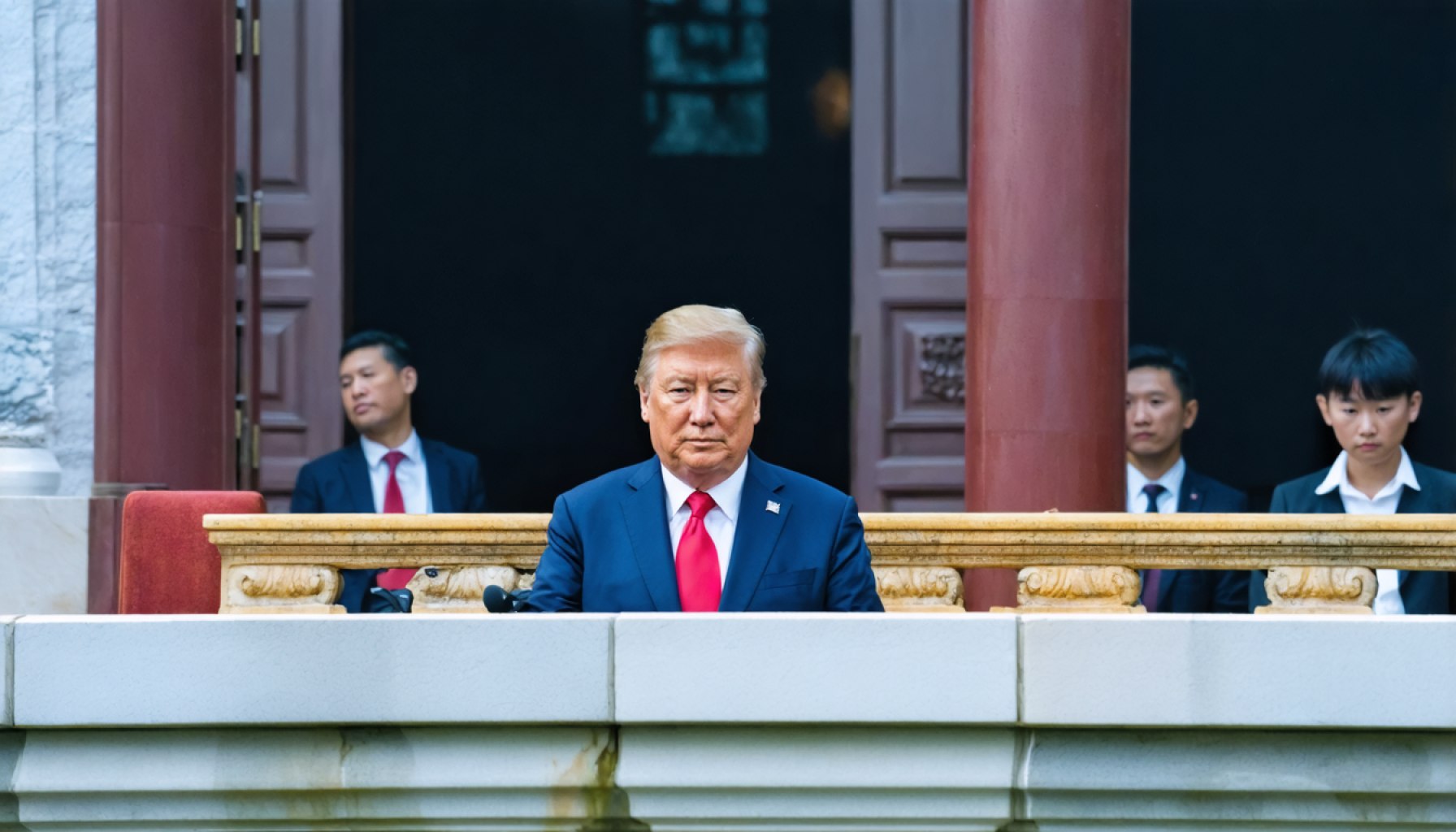- Jiang Chaoliang, a significant figure in China’s political scene, faces allegations investigated by the Central Commission for Discipline Inspection.
- Jiang served as Governor of Jilin Province and Communist Party Secretary for Hubei, making impactful contributions to agricultural policies and provincial leadership.
- A probe into Jiang’s activities highlights persistent themes of power and public accountability in Chinese politics.
- The situation illustrates the importance of integrity in leadership, underscoring the consequences of losing public trust.
- The investigation captivates national attention, emphasizing the critical balance of power, duty, and scrutiny in governance.
A storm brews in China’s political landscape as a prominent figure faces allegations that shake the very core of his illustrious career. The news emerges like a bolt from the blue—Jiang Chaoliang, once revered as a key force in shaping agricultural policies, now stands under the glaring scrutiny of the Central Commission for Discipline Inspection.
Born in August 1957, Jiang’s journey through the echelons of power saw him donning the mantle of Jilin Province Governor and later ascending to the role of Communist Party Secretary for Hubei, a position that etched his name into the annals of provincial leadership. His legacy in these roles was defined by decisive, often transformative actions that resonated far and wide.
Yet, as the corridors of power echo with whispers, Jiang finds himself encircled by allegations that cast a shadow over his tenure. A meticulous probe by the top disciplinary watchdog seeks to unravel the threads of reported violations—a quest that captivates the nation and foregrounds a perennial theme within Chinese politics.
This dramatic fall from grace underscores a vital lesson: integrity remains the bedrock of leadership. In an era where public accountability is paramount, Jiang’s unfolding story serves as a potent reminder of the responsibilities that accompany the wielding of influence. As the investigation progresses, all eyes remain fixated on the revelations it may unearth, a testament to the potent blend of power, duty, and scrutiny that defines public service.
In these riveting developments, one is reminded that in the high-stakes arena of governance, trust, once lost, can cast long shadows on even the most distinguished careers.
Storm in China’s Political Sphere: What Jiang Chaoliang’s Investigation Reveals About Political Accountability
The Dynamics of Chinese Political Integrity
The unfolding investigation into Jiang Chaoliang, a former key figure in Chinese agricultural policy and provincial governance, underscores the persistent priority placed on integrity within Chinese politics. With his career previously marked by significant leadership as the Governor of Jilin Province and Communist Party Secretary for Hubei, Jiang’s case brings several pertinent areas into focus.
How-To Navigate Political Accountability in Governance
1. Establish Transparent Practices: Public officials should implement and adhere to transparent decision-making processes, ensuring that all actions taken are well-documented and publicly accessible.
2. Ethics Training: Regular training in ethical governance can help prevent misconduct and promote a culture of integrity among public servants.
3. Create Robust Whistleblower Channels: Developing secure and anonymous pathways for internal reporting can help uncover potential misconduct before it escalates into public scandal.
Real-World Use Cases: Responding to Allegations
Several countries have implemented mechanisms to deal with similar issues of political accountability:
– South Korea: Introduced stringent anti-corruption policies following high-profile scandals, leading to the impeachment of officials who were found guilty of corruption.
– Brazil: The “Operation Car Wash” scandal led to a series of reforms in public procurement processes and enhanced scrutiny of politicians’ financial activities.
Industry Trends: Governance and Accountability
The political landscape globally is increasingly driven by demands for transparency and accountability:
– AI in Governance: Many countries are adopting AI technologies to track and ensure compliance with laws and regulations in real time.
– Public Engagement: Politicians are increasingly leveraging social media platforms to communicate directly with constituents, providing greater transparency.
Pros & Cons Overview: Integrity in Leadership
Pros:
– Increased Public Trust: Integrity fosters trust, crucial for effective governance and policy implementation.
– Enhanced International Relations: Countries led by accountable leaders often enjoy more robust international relations.
Cons:
– Risk of Over-Scrutiny: Excessive scrutiny can paralyze decision-making, hindering timely policy response.
– Potential for Political Instability: High-profile investigations may lead to shifts in political stability, causing uncertainty.
Actionable Recommendations
– Leverage Technology for Transparency: Implement digital tools for monitoring public servants’ actions and finances.
– Regular Public Reports: Encourage public officials to provide regular updates on their activities and decisions to ensure transparency.
Readers are encouraged to remain informed and engaged in discussions around governance and integrity. Staying updated on both local and global political dynamics can empower individuals to hold their leaders accountable.
For more insights into governance and political responsibility, you can visit the BBC.
Maintaining public trust through integrity remains essential in governance. The case of Jiang Chaoliang serves as a critical reminder of the responsibilities political leaders bear in the public eye.
